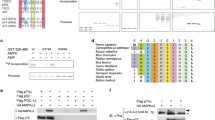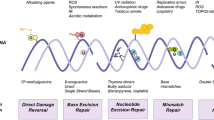Abstract
p53 protein encoded by the TP53 gene performs one of the most important functions in the process of human tumor suppression. Mutations in the DNA-binding domain of p53 change its conformation, which contributes to the formation of aberrant intracellular protein complexes including heat shock proteins (Hsp70). This can provoke an occurrence of the aggressive types of tumors including breast cancer. Thereby, the study of the regulation mechanisms of mutant p53 in these stable complexes seems extremely relevant. The aim of this work was to study the regulation of p53 protein mutant for R175H (mutp53−R175H) under heat stress in MDA–MB-231 breast cancer cells in vitro. It was found that heat shock caused a drastic decrease in the level of wtp53 (wild-type p53) and mutp53–R175H proteins. It was gradually restored after the stress ceased. We also have found that mutp53–R175H increases the intracellular level of Hsp70 in normal conditions and reduces it after heat shock. At the same time, mutp53–R175H protein changes its intracellular localization, both in normal conditions and in response to heat shock being in the composition of Hsp70 protein complexes. Thus, the behavior of wtp53 and mutp53–R175H in response to heat shock appears to differ due to different interactions with protein complexes that regulate their stability and intracellular localization.




Similar content being viewed by others
REFERENCES
Barlev, N.A., Sayan, B.S., Candi, E., and Okorokov, A.L., The microRNA and p53 families join forces against cancer, Cell Death Differ., 2010, vol. 17, pp. 373–375.
Brooks, C.L., Li, M., Hu, M., Shi, Y., and Gu, W., The P53–Mdm2–HAUSP complex is involved in p53 stabilization by HAUSP, Oncogene, 2007, vol. 26, pp. 7262–7266.
Calderwood, S.K., Khaleque, M.A., Sawyer, D.B., and Ciocca, D.R., Heat shock proteins in cancer: chaperones of tumorigenesis, Trends Biochem. Sci., 2006, vol. 31, pp. 164–172.
Dai, C. and Gu, W., p53 post-translational modification: deregulated in tumorigenesis, Nat. Rev. Cancer, 2010, vol. 16, pp. 528–536.
Daks, A.A., Melino, D., and Barlev, N.A., The role of different E3 ubiquitin ligases in regulation of the P53 tumor suppressor protein, Tsitologiia, 2013, vol. 55, no. 10, pp. 673–687.
Davidovich, P., Aksenova, V., Petrova, V., Tentler, D., Orlova, D., Smirnov, S., Gurzhiy, V., Okorokov, A.L., Garabadzhiu, A., Melino, G., Barlev, N., and Tribulovich, V., Discovery of novel isatin-based p53 inducers, Med. Chem. Lett., 2015, vol. 6, pp. 856–860.
Fedorova, O., Daks, A., Petrova, V., Petukhov, A., Lezina, L., Shuvalov, O., Davidovich, P., Kriger, D., Lomert, E., Tentler, D., Kartsev, V., Uyanik, B., Tribulovich, V., Demidov, O., Melino, G., and Barlev, N.A., Novel isatin-derived molecules activate p53 via interference with Mdm2 to promote apoptosis, Cell Cycle, 2018, vol. 17, pp. 1917–1930.
Haupt, Y., Maya, R., Kazaz, A., and Oren, M., Mdm2 promotes the rapid degradation of p53, Nature, 1997, vol. 387, pp. 296–299.
King, F.W., Wawrzynow, A., Hohfeld, J., and Zylicz, M., Co-chaperones Bag-1, Hop and Hsp40 regulate Hsc70 and Hsp90 interactions with wild-type or mutant p53, EMBO J., 2001, vol. 20, pp. 6297–6305.
Laemmli, U.K., Cleavage of structural proteins during the assembly of the head of bacteriophage T4, Nature, 1970, vol. 227, pp. 680–685.
Li, D., Marchenko, N.D., Schulz, R., Fischer, V., Velasco-Hernandez, T., Talos, F., and Moll, U.M., Functional inactivation of endogenous MDM2 and CHIP by HSP90 causes aberrant stabilization of mutant p53 in human cancer cells, Mol. Cancer Res., 2011, vol. 9, pp. 577–588.
Lukashchuk, N. and Vousden, K.H., Ubiquitination and degradation of mutant p53, Mol. Cell Biol., 2007, vol. 27, pp. 8284–8295.
Marouco, D., Garabadgiu, A.V., Melino, G., and Barlev, N.A., Lysine-specific modifications of p53: a matter of life and death?, Oncotarget, 2013, vol. 4, pp. 1556–1571.
Maya, R., Balass, M., Kim, S.-T., Shkedy, D., Leal, J.-F.M., Shifman, O., Moas, M., Buschmann, T., Ronai, Z., Shiloh, Y., Kastan, M., Katzir, E, and Oren, M., ATM-dependent phosphorylation of Mdm2 on serine 395: role in p53 activation by DNA damage, Genes Dev., 2001, vol. 15, pp. 1067–1077.
Meek, D.W. and Anderson, C.W., Posttranslational modification of p53: cooperative integrators of function, Cold Spring Harb. Perspect. Biol., 2009. https://doi.org/10.1101/cshperspect.a000950
Mittenberg, A.G., Moiseeva, T.N., and Barlev, N.A., Role of proteasomes in transcription and their regulation by covalent modifications, Front. Biosci., 2008, vol. 13, pp. 7184–7192.
Momand, J., Zambetti, G.P., Olson, D.C., George, D., and Levine, A.J., The mdm-2 oncogene product forms a complex with the p53 protein and inhibits p53-mediated transactivation, Cell, 1992, vol. 69, pp. 1237–1245.
Muller, P., Hrstka, R., Coomber, D., Lane, D.P., and Vojtesek, B., Chaperone-dependent stabilization and degradation of p53 mutants, Oncogene, 2008, vol. 27, pp. 3371–3383.
Narayanan, N.K., Narayanan, B.A., Bosland, M., Condon, M.S., and Nargi, D., Docosahexaenoic acid in combination with celecoxib modulates HSP70 and p53 proteins in prostate cancer cells, Int. J. Cancer, 2006, vol. 119, pp. 1586–1598.
Olivier, M., Langer, A., Carrieri, P., Bergh, J., Klaar, S., Eyfjord, J., Theillet, C., Rodriguez, C., Lidereau, R., Bieche, I., Varley, J., Bignon, Y., Uhrhammer, N., Winqvist, R., Jukkola-Vuorinen, A., Niederacher, D., Kato, S., Ishioka, C., Hainaut, P., and Borresen-Dale, A.-L., The clinical value of somatic TP53 gene mutations in 1,794 patients with breast cancer, Clin. Cancer Res., 2006, vol. 12, pp. 1157–1167.
Olivier, M., Hollstein, M., and Hainaut, P., TP53 mutations in human cancers: origins, consequences, and clinical use, Cold Spring Harb. Perspect. Biol., 2010. https://doi.org/10.1101/cshperspect.a001008
Peng, Y.H., Chen, L.H., Li, C.G., Lu, W.G., and Chen, J.D., Inhibition of MDM2 by hsp90 contributes to mutant p53 stabilization, J. Biol. Chem., 2001, vol. 276, pp. 40 583–40 590.
Petitjean, A., Mathe, E., Kato, S., Ishioka, C., Tavtigian, S.V., Hainaut, P., and Olivier, M., Impact of mutant p53 functional properties on TP53 mutation patterns and tumor phenotype: lessons from recent developments in the IARC TP53 database, Hum. Mutat., 2007, vol. 28, pp. 622–629.
Pomerantz, J., Schreiber-Agus, N., Liegeois, N.J., Silverman, A., Alland, L., Chin, L., Potes, J., Chen, K., Orlow, I., Lee, H.W., Cordon-Cardo, C., and de Pinho, R.A., The Ink4a tumor suppressor gene product, p19 Arf, Iinteracts with MDM2 and neutralizes MDM2’s inhibition of p53, Cell, 1998, vol. 92, pp. 713–723.
Reinhardt, H.C. and Schumacher, B., The p53 network: cellular and systemic DNA damage responses in aging and cancer, Trends Genet., 2012, vol. 28, pp. 128–136.
Steiner, K., Graf, M., Hecht, K., Reif, S., Rossbacher, L., Pfister, K., Kolb, H.-J., Schmetzer, H.M., and Multhoff, G., High HSP70-membrane expression on leukemic cells from patients with acute myeloid leukemia is associated with a worse prognosis, Leukemia, 2006, vol. 20, pp. 2076–2079.
Vassilev, L.T., Vu, B.T., Graves, B., Carvajal, D., Podlaski, F., Filipovic, Z., Kong, N., Kammlott, U., Lukacs, C., Klein, C., Fotouhi, N., and Liu, E.A., In vivo activation of the p53 pathway by small-molecule antagonists of MDM2, Science, 2004, vol. 303, pp. 844–848.
Vogelstein, B., Lane, D., and Levine, A.J., Surfing the p53 network, Nature, 2000, vol. 408, pp. 307–310.
Wiech, M., Olszewski, M.B., Tracz-Gaszewska, Z., Wawrzynow, B., Zylicz, M., and Zylicz, A., Molecular mechanism of mutant p53 stabilization: the role of HSP70 and MDM2, PLoS One, 2012. https://doi.org/10.1371/journal.pone.0051426
Wu, B., Chu, X., Feng, C., Hou, J., Fan, H., Liu, N., Li, C., Kong, X., Ye, X., and Meng, S., Heat shock protein gp96 decreases p53 stability by regulating Mdm2 E3 ligase activity in liver cancer, Cancer Lett., 2015, vol. 359, pp. 325–334.
Yan, W., Jung, Y.S., Zhang, Y., and Chen, X., Arsenic trioxide reactivates proteasome-dependent degradation of mutant p53 protein in cancer cells in part via enhanced expression of Pirh2 E3 ligase, PLoS One, 2014. https://doi.org/10.1371/journal.pone.0103497
Younger, J.M., Ren, H.Y., Chen, L., Fan, C.Y., Fields, A., Patterson, C., and Cyr, D.M., A foldable CFTRΔF508 biogenic intermediate accumulates upon inhibition of the Hsc70–CHIP E3 ubiquitin ligase, J. Cell Biol., 2004, vol. 167, pp. 1075–1085.
Zylicz, M., King, F.W., and Wawrzynow, A., Hsp70 interactions with the p53 tumour suppressor protein, EMBO J., 2001, vol. 20, pp. 4634–4638.
Funding
This study was supported by the Russian Science Foundation, project no. 14-50-00068.
Author information
Authors and Affiliations
Corresponding author
Ethics declarations
Conflict of interests. The authors declare that they have no conflict of interest.
Statement of compliance with standards of research involving humans as subjects. All procedures performed in studies involving human participants were in accordance with the ethical standards of the institutional and/or national research committee and with the 1964 Helsinki Declaration and its later amendments or comparable ethical standards. Informed consent was obtained from all individual participants involved in the study.
Additional information
Translated by I. Fridlyanskaya
Abbreviations: HSP—heat shock protein, mutp53—mutant p53 protein, mutp53–R175H—p53 R175H mutant protein.
Rights and permissions
About this article
Cite this article
Parfenyev, S.E., Smotrova, A.N., Shkliaeva, M.A. et al. Regulation of p53 Protein Function in Response to Heat Shock. Cell Tiss. Biol. 13, 259–267 (2019). https://doi.org/10.1134/S1990519X19040072
Received:
Revised:
Accepted:
Published:
Issue Date:
DOI: https://doi.org/10.1134/S1990519X19040072




